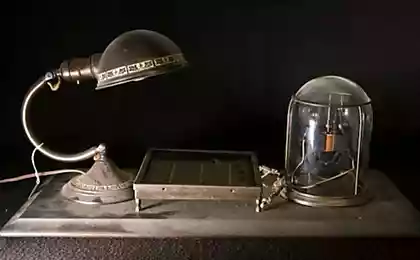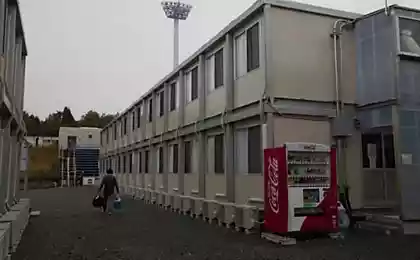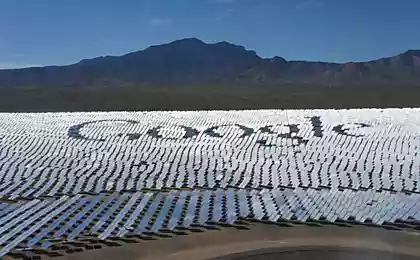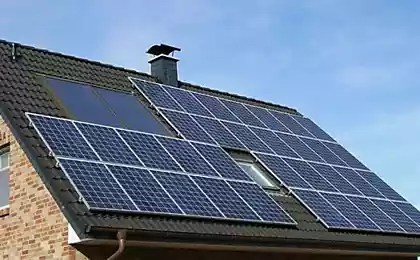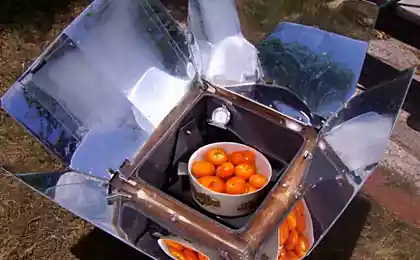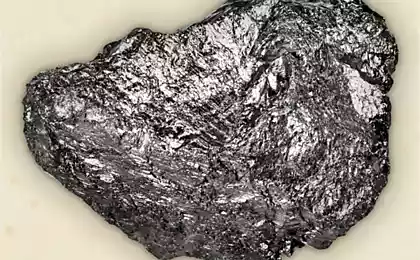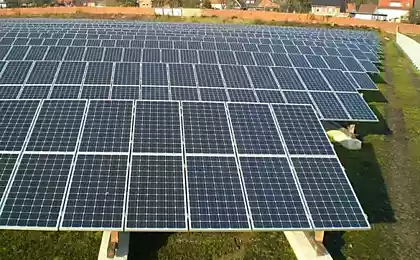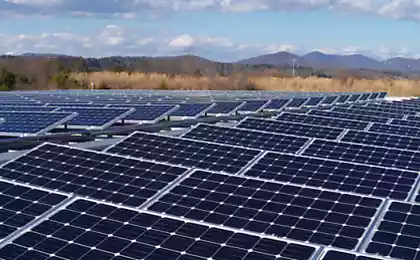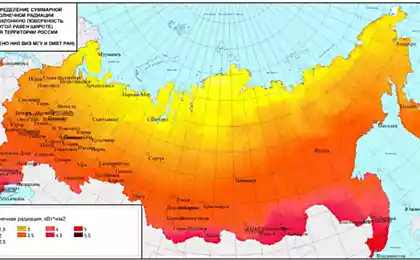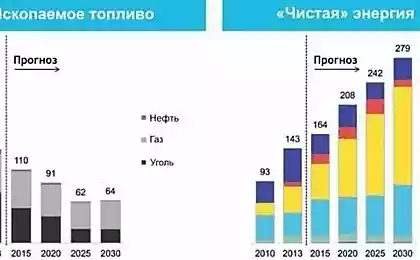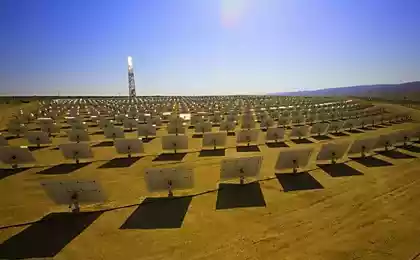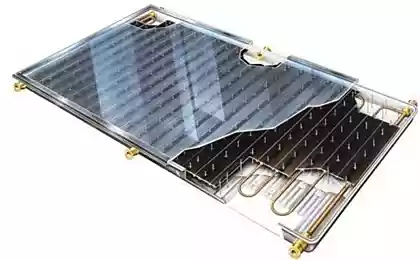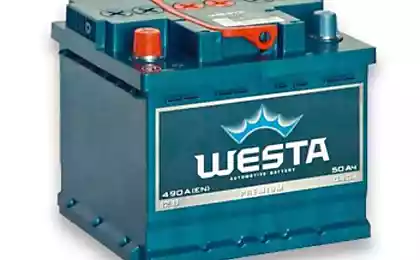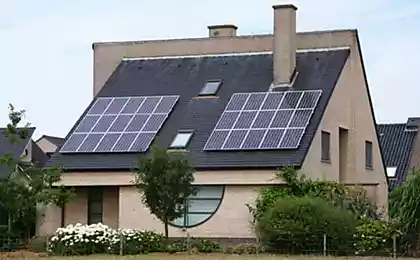593
Began testing hybrid power plant of concentrated solar power
Power plant concentrated solar power (CSP) focus thermal energy from the sun to produce steam which drives the turbine to generate electricity.
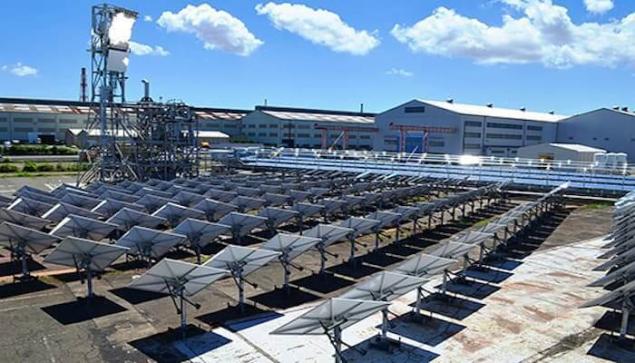
Today, Mitsubishi Hitachi Power Systems (MHPS) is testing the performance of the new hybrid system, which is designed to improve efficiency and reduce costs by combining tower solar energy with low-temperature Fresnel evaporator.
Conventional CSP systems consist of arrays of heliostats, mirrors that track the sun to ensure that the reflected light is always directed at a specific point. However, they are more difficult and expensive than a photovoltaic installation, but the CSP system can cope better with fluctuations in the intensity of sunlight and produce energy more consistently at night or in cloudy conditions, since the thermal energy can be stored and used to continue producing electricity long after sunset.
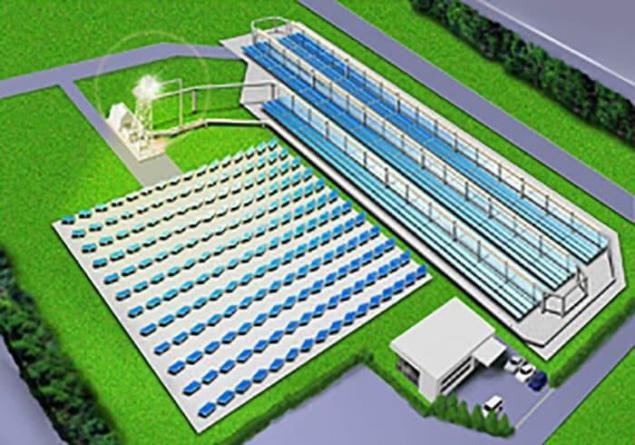
Occupying more than 10,000 square meters, the test stand MHPS includes 150 heliostats, steam superheater built into the tower as well as cheap vaporizer Fresnel. From the total sunlight collected on the plant, the evaporator absorbs 70 percent, thanks to the planes of the mirror surfaces with adjustable angles. Using the obtained heat energy, the Fresnel evaporator heats water to produce steam at a temperature of about 300 ° C.
This steam is then routed to a reheater located in the upper part of the small tower where it is further heated to 550 ° C using solar light focused by the heliostats. As the steam is already heated, requires a smaller array of heliostats for it overheating, so this process can occur at a lower price compared to other CSP systems. Mitsubishi says that his hybrid test system is able to generate power equivalent to 300 kWh of electricity.
Working on the platform of the Yokohama Works, under contract with the Japanese Ministry of environment, MHPS will start test production until March 2017 to check whether the hybrid system the concentrated solar energy to improve the efficiency of existing CSP technologies. Testing of the system storage high temperature thermal energy will also begin in October to test whether the system can stably supply power without the aid of systems based on fossil fuels. published
Source: facepla.net/the-news/energy-news-mnu/5511-mitsubishi-%D1%8D%D0%BB%D0%B5%D0%BA%D1%82%D1%80%D0%BE%D1%81%D1%82%D0%B0%D0%BD%D1%86%D0%B8%D1%8F.html

Today, Mitsubishi Hitachi Power Systems (MHPS) is testing the performance of the new hybrid system, which is designed to improve efficiency and reduce costs by combining tower solar energy with low-temperature Fresnel evaporator.
Conventional CSP systems consist of arrays of heliostats, mirrors that track the sun to ensure that the reflected light is always directed at a specific point. However, they are more difficult and expensive than a photovoltaic installation, but the CSP system can cope better with fluctuations in the intensity of sunlight and produce energy more consistently at night or in cloudy conditions, since the thermal energy can be stored and used to continue producing electricity long after sunset.

Occupying more than 10,000 square meters, the test stand MHPS includes 150 heliostats, steam superheater built into the tower as well as cheap vaporizer Fresnel. From the total sunlight collected on the plant, the evaporator absorbs 70 percent, thanks to the planes of the mirror surfaces with adjustable angles. Using the obtained heat energy, the Fresnel evaporator heats water to produce steam at a temperature of about 300 ° C.
This steam is then routed to a reheater located in the upper part of the small tower where it is further heated to 550 ° C using solar light focused by the heliostats. As the steam is already heated, requires a smaller array of heliostats for it overheating, so this process can occur at a lower price compared to other CSP systems. Mitsubishi says that his hybrid test system is able to generate power equivalent to 300 kWh of electricity.
Working on the platform of the Yokohama Works, under contract with the Japanese Ministry of environment, MHPS will start test production until March 2017 to check whether the hybrid system the concentrated solar energy to improve the efficiency of existing CSP technologies. Testing of the system storage high temperature thermal energy will also begin in October to test whether the system can stably supply power without the aid of systems based on fossil fuels. published
Source: facepla.net/the-news/energy-news-mnu/5511-mitsubishi-%D1%8D%D0%BB%D0%B5%D0%BA%D1%82%D1%80%D0%BE%D1%81%D1%82%D0%B0%D0%BD%D1%86%D0%B8%D1%8F.html
In Russia there will be unmanned harvester
Inconspicuous summer fruits that you want to include in the diet
